|
 |
Events
- On 18 January, University of Jena will host its PhD
Day in the Rosensäle. Those who are interested
in a doctorate, doctoral candidates and soon-to-be
postdocs have the chance to get information about
relevant issues regarding the doctoral phase. The
programme will be published on this
website soon. (Illustration above:
istockphoto.com)
- From 6 to 8 December, the Graduate Academy is
organising the Postdoc Days 2023. Some of
the sessions may also be of interest to advanced
doctoral candidates, e.g. the (German) lecture on "Performance
assessment in German Academia". You can find
the complete programme here.
- On 6 December, international doctoral
candidates can establish contacts with
Thuringian companies at the Ernst Abbe
University of Applied Sciences. The event "Meet
your future employer - Your entry into the
Thuringian job market" is aimed at doctoral
candidates from engineering and natural science
disciplines. It will cover topics such as
applications, job interviews and salary
negotiations. The event will be mostly held in
English (even though the website is only available
in German).
- A project on future academic cooperations with
China has
been launched at the University of Jena. The
project aims to increase the China expertise of
academics by establishing a knowledge platform. It
will be funded with 500,000 euros over the next
three years. Such platforms will be set up at 12
locations across Germany. The kick-off
event for the project will take place in the
Rosensäle on 14 December. The event language will be
German. Registration is possible until 6 December.
- Every first Friday of the month, the doctoral
council (DR.FSU) organises a regulars' table for
doctoral candidates at the University of Jena.
The next regulars' table will take place on 8
December and offers an opportunity to discuss topics
related to the doctorate and to get to know other
doctoral candidates. It starts at 20:00 in the "Faß"
in Wagnergasse. Information on future regulars'
tables can be found here.
|
|
|
|
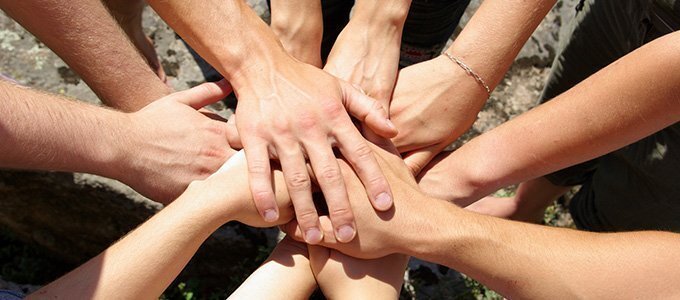 |
Get
involved
- There is one group that is frequently overlooked
in many discussions about improving conditions for
doctoral candidates: The doctoral scholarship
holders. An initiative of the Doctoral Council
(DR.FSU) wants to change this. The plan is to set up
a group at the University of Jena in which
scholarship holders can discuss the conditions of
their scholarships and work on improving them. If
you are interested in participating, please contact
Barbara Meier of DR.FSU (barbara.meier@uni-jena.de).
- Even at universities, there are unequal
opportunities, discrimination and privileges.
University teaching also reflects this. But how can
we raise awareness of this discrimination in
teaching and how can mechanisms of exclusion
be addressed? A workshop
on this topic will be held on 29 January 2024.
The (German) workshop will be given by the
Competence Centre "Intersectional Pedagogy".
Registration is possible until 20 January by e-mail.
- Would you like to pass on your interests and
skills to others and gain teaching experience with a
ambitious and highly motivated target group
(doctoral researchers and postdocs)? Then you can propose
your own workshop topic to the Graduate
Academy and offer the workshop in the Doc4Doc
series of the qualification programme.
Previous topics have included research methods,
presentations, literature management and others.
- A new
programme has been launched to connect academics
with disabilities or chronic illnesses with
well-known companies. The programme offers the
opportunity to take part in coaching sessions and
workshops on self-presentation. Furthermore, there
will be a virtual
regulars' table for doctoral researchers
with disabilities or chronic illnesses on 11
December. Further information on pursuing a
doctorate with disabilities can be found here.
|
|
|
|
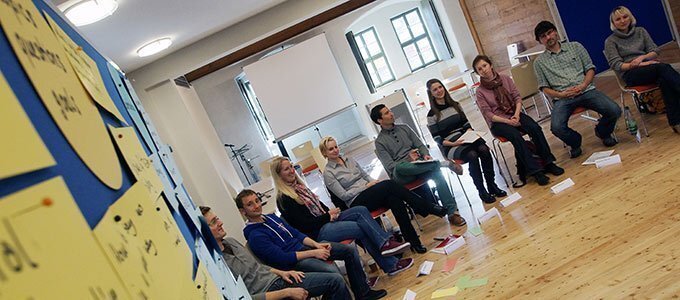 |
Qualification
offers
There are still vacancies in the following online and
on-site workshops:
- Graduate Academy:
- Lehre Lernen:
- Service Centre for Research and Transfer:
- Competence Center Digital Research (zedif):
|
|
|
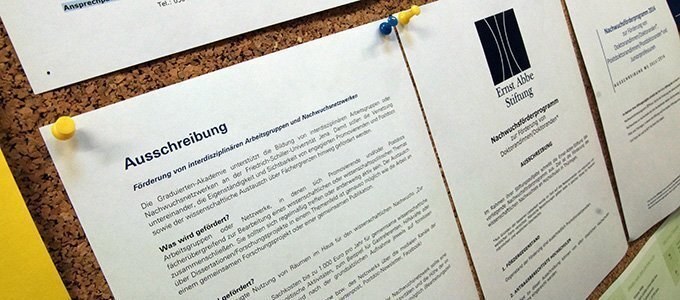 |
|
|
|
|
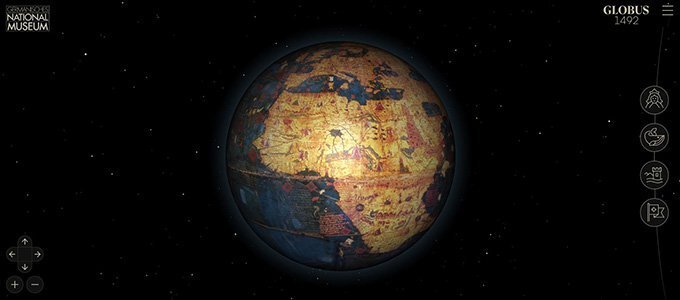 |
This
may be of interest to you
- For
the second time, Nature has surveyed
postdocs from 93 countries about their
satisfaction. After the results of the first
survey were determined by the uncertainty of the
Covid pandemic, the concerns of postdocs are now
more " science-specific" again: the struggle for
funding, the fear of not finding a job in their own
research field or an unbalanced work-life balance.
Just over half of the postdocs (54%) are satisfied
with their work in academia. On the other hand, they
are not satisfied with their pay (40%) and the
management in their organisation (39%). 41 per cent
are optimistic about their professional future – an
astonishing increase compared to 2020, when the
figure was just 28%. Nevertheless, more than half of
the postdocs (52%) have considered leaving their
academic field due to mental health concerns.
- The
controversy over how to reform the German
Academic Employment Law
(Wissenschaftzeitvertragsgesetz) continues. In June,
the FDP-led Federal Ministry of Education and
Research presented
a proposal that would have allowed postdocs to
be employed on fixed-term contracts for four years
initially and then for a further two years. However,
this was rejected by the coalition partners the
Social Democrats and the Green Party. A new
idea was that a maximum fixed-term quota for
universities could be set by law. According to an
assessment from September, this would be
legally possible. The ministry has now rejected
such a solution – it would be "neither academically
appropriate nor practicable to implement". When
asked by the Christian Democratic Union (CDU) how
the reform would proceed, the ministry postponed
its response until next summer. Pressure was also
put on the ministry by the Bundestag Budget
Committee which demanded
that a programme should be developed to create more
permanent positions in academia. However, the
deadline for this is also the end of 2024.
- The oldest preserved globe of the world
has been digitised and can now be rotated
virtually (see screenshot above). On the
globe, you can zoom in on mystical creatures, island
kings, coats of arms and inscriptions. You can also
find more information in English about each of
these. The globe was created in 1492 by the
Nuremberg merchant Martin Behaim. The podcast
"Tonspur Wissen" by the Rheinische Post provides further
information in German about the globe.
- Queen, Pink Floyd, Public Enemy, Blur – all these
bands met each other at universities. And yet very few
songs are made about universities. An article
in Times Higher Education explores the reasons
for this and presents some songs. The explanation of
the author: The university life experience cannot be
generalised because it is only attended by about
half of the population – unlike school. Therefore,
when universities appear in songs, it is most likely
as an ivory tower in contrast to "real" life (e.g. Pulp,
Jamie
Cullum, Antilopen
Gang).
|
|
|
|
 |
News
from academia around the globe
- A fraud scandal in spain casts a bad light
on global academic rankings: Eleven Spanish
researchers had stated
in surveys for the Clarivate database that they
worked at Saudi universities. They had each received
around 70,000 euros a year from these universities.
The Clarivate
database lists the most frequently cited
researchers worldwide. As a result of the
manipulation, Saudi Arabia had five times as many
high-ranking researchers in
this ranking than Germany (a country with more
than twice the population). Further research revealed
that Saudi universities had been carrying out such
manipulations since 2014 and that not only
researchers from Spain were involved, but also from
China, America and Turkey. A total of 1,000
academics have now been excluded
from the next ranking. (Symbolic picture:
Adobestock.com)
- A new study by the German Academic Exchange
Service (DAAD) has analysed
how attractive the German academic system is for
international researchers. The study notes
positively that there is a relatively high
proportion of international researchers among
doctoral candidates and postdocs. However, this
decreases significantly at professorship level. Why
is that? The study's answer: the need for German
language skills, a complicated residence law,
experienced hostility towards foreigners in everyday
life, uncertain long-term career prospects and
unclear application requirements.
- In Denmark, a new form of awarding research
funding has been trialled since 2017.
Researchers with unorthodox ideas can apply to the Villum
Experiment. Applications are completely
anonymised during the review process. The recipients
receive a grant of 260,000 euros for a period of two
years. An evaluation
has now confirmed
that such a model can be successful: The grantees
felt that the unconventional application process and
the smaller funding amount allowed them much more
freedom in their research. How much influence
knowledge about the person can have on the
assessment of academic performance is shown by the
German Research Foundation on
this page based on several studies.
|
|
|
|
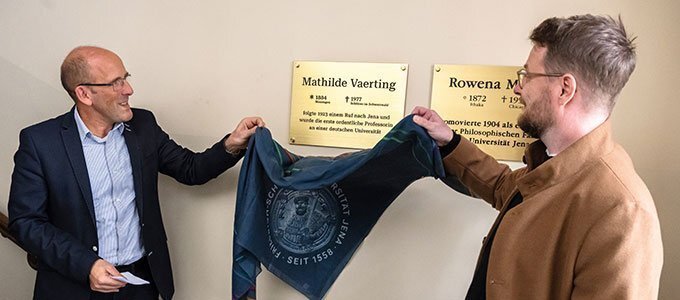 |
News
from University of Jena
- The University of
Jena has honoured the first female professor
to be appointed to the university. Mathilde Vaerting
had been appointed to the university by the ministry
exactly 100 years ago against the will of the
university management and the professors. The
professors were so hostile that she was only able to
hold her lectures in the evenings - and sometimes
the electricity was even switched off. A memorial
plaque has
now been installed in her honour in the
university's main building and a symposium
has been held (Picture above: FSU /Jens
Meyer). In addition, her inaugural lecture was
re-enacted in a staged
reading on 28 November.
- The University of
Jena is applying for the "HR
Excellence in Research Award". As part of the
process, researchers at all career levels have
analysed what makes a university attractive
and where there is potential for improvement. A
padlet with initial results was compiled for this
purpose. All researchers are cordially invited to
add their perspectives to
the padlet. As it is in German, please contact
Gabi Schopf,
if you want to add something there.
- The University is
switching its administrative processes to a new
software on 1 January. This may lead to
uncertainties in the new year regarding the
reimbursement of material resources and travel
expenses. In addition, the Friedolin student
administration system is to be digitalised
and a new document management system introduced.
- Since 1 October,
enrolled doctoral candidates can visit the
Schillerhof and Kino am Markt cinemas free of
charge from Monday to Thursday. During the
summer, it was decided in a ballot that the
Kulturticket should be extended to include free
admission to both cinemas. With the culture
ticket, students in Jena also receive free
admission to the Jena Philharmonic, the city museum,
the art collection, the Romantikerhaus and the
theatre.
|
|
|
|
 |
Latest
News from Jena city
- There are two new exhibitions to visit in
Jena: The Romantikerhaus is showing 50
French print works from the 19th century
(Picture above: The Metropolitan Museum of Art). In
the Phyletic Museum, the exhibition
"Electrum Mundi – Amber Worlds" shows animals
that were fossilised millions of years ago in
primeval tree resin as amber. (Picture above: The
Metropolitan Museum of Art)
- What special things are there to discover in Jena?
Which restaurants are worth a visit? Where can you
do alternative shopping? The city guide "Insider
tip Jena" aims to answer all these questions.
On 180 pages you will find 122 places and 65 insider
tips. The city guide is written in German and
English and can be purchased for 6 euros at these
locations.
- A new
portal illustrates the diversity of Jewish
heritage and contemporary Jewish culture in
Thuringia. The central element is a virtual map of
historical and current places and buildings,
including synagogues, schools and cemeteries. There
are also 360° interior and exterior shots of some
buildings allowing a virtual visit.
- Two cultural Advent calendars can shorten
the time until Christmas: The Kultürchen
offers a cultural surprise every day, which can
range from theater to music or readings to dance
performances. The doors open at 19.30 at
Karl-Liebknecht-Straße 32. The musical
Advent calendar, on the other hand, always
takes place at 18.00h but at a different location.
An overview of the venues can be found here.
|
|